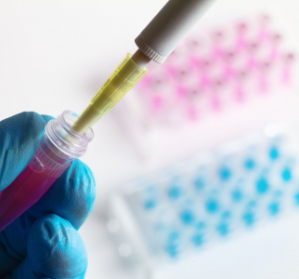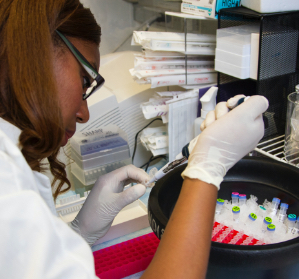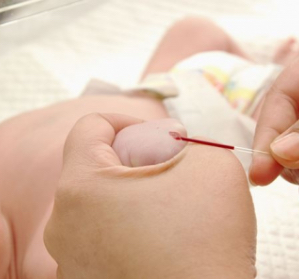REPOSITORY ITEMS
"Rare diseases are poorly understood by a large part of the healthcare workforce, which greatly delays their diagnosis and leads to inequities in their management. For these reasons, European, Spanish and regional health policies are directing their efforts to improve the care of these pathologies through the creation of centres of reference".

Rare diseases have a low prevalence and a high level of clinical complexity, which makes their diagnosis very difficult. It is therefore not surprising that a high percentage of such cases have to be referred to specialised clinical centres and, ultimately, to non-diagnostic case programmes. SpainUDP is one such programme, created by the Institute for Research on Rare Diseases (Instituto de Salud Carlos III) in an attempt to respond to the large number of consultations received at this centre on undiagnosed cases. SpainUDP offers a multidisciplinary approach to patients who have been seeking a diagnosis for their disease for a long time without getting a clear answer. The procedure used at SpainUDP to try to obtain a diagnosis for these patients is based on the exhaustive and individualised study of each case, the use of the latest technological advances in the field of genomics and the establishment of international information exchange systems.

Genetic counselling is a key medical process, which precedes, follows and is closely related to genetic diagnosis and research. It consists in obtaining, interpreting and providing genetic, medical and reproductive information to patients and families related to rare diseases. It complements, in a necessary and mandatory way, the availability of biotechnological genetic resources. It should be carried out in a clinical setting, through genetic services and with the support of multidisciplinary health teams that can facilitate adequate and equitable access to patients, as well as their subsequent follow-up.

Rare diseases (RD) constitute a health problem in modern societies, where chronic pathologies condition a large part of healthcare activity. On their own they are rare, but together they make up a wide range of disease patterns. The primary care paediatrician may be faced with a child or adolescent suffering from a RD, of which he/she will probably have little experience. The aspects to be considered in the management of these diseases are the following: a) guide the diagnostic process to establish it as early as possible; b) participate in the primary care team to improve diagnostic capacity, provide follow-up and manage the patient's therapeutic plan, as well as the RD registry of the health area; c) maintain a close relationship with the reference unit of the university hospital, and d) be aware of the genetic tests performed and the genetic diagnosis, inheritance and risk of familial recurrence.

Most of the diseases that we know as rare, minority or uncommon are due to inherited metabolic disorders. They are generally multisystemic, chronic, progressive and sometimes disabling diseases. Progress in the early diagnosis and treatment of these diseases has led to an increasing number of patients reaching adulthood, making it necessary to adapt to this new situation and provide adequate care for these diseases, traditionally considered to be paediatric.

Yes, I believe we can incentivise the development and use of orphan drugs at the same time. Since the advent of specific legislation on orphan drugs (1983 in the US, 1993 in Japan, 1997 in Australia and 2000 in the EU), there has been a political debate on whether additional incentives, implemented as a result of such legislation, are appropriate. We have seen something similar before with the "neglected diseases", diseases that particularly afflict the world's poorest populations.

Early detection programmes for rare diseases, which in some countries are already 50 years old, aim to reduce the morbidity and mortality and disabilities associated with these pathologies. There is no worldwide unanimity on the diseases to be detected; mainly metabolic processes are identified, but also endocrine, haematological, immunological and cardiological processes. Neonatal screening for rare diseases received a major boost in the 2000s, with the use of tandem mass spectrometry to determine acylcarnitines and amino acids in a paper-impregnated blood sample. The introduction of emerging technologies applicable to new biochemical biomarkers and DNA analysis by mass sequencing may have a favourable impact on the future of rare disease screening. Therefore, an agile decision-making system is needed to assess the inclusion of new pathologies in neonatal screening.

Rare diseases (RDDs) are, by definition, diseases that affect a small number of people compared to the general population. In Europe, a disease is considered rare when it affects 1 in 2,000 people. While almost all genetic diseases are RDDs, not all RDDs are genetic diseases. Today we already have some scientific and technological advances that will eventually lead to a better understanding and characterisation of RRDs and a more accurate diagnosis, and consequently a more specific and effective treatment for each patient. The diagnosis of RRDs is in many cases genetic, so that a better definition of the disease requires the application of genetic study techniques. These pages offer a review of the main genetic tests that can currently be performed in public and private centres, and discuss their contribution to a better understanding of RRDs.

Most rare diseases currently lack a satisfactory therapeutic alternative. Many of these diseases affect children who either do not survive the disease or do so with severe sequelae. The important advances achieved in recent times in terms of technological development of vectors and knowledge of the molecular mechanisms involved in the development of the disease invite optimism and allow us to venture that in the coming years gene therapy could become the treatment of choice for these diseases. In fact, the first gene therapy treatment has already reached the market in the western world. The drug is an adeno-associated virus for the treatment of a rare disease, lipoprotein lipase deficiency, which will initially be administered to patients with recurrent pancreatitis17. Hopefully this is only the first in a long line of new treatments for rare diseases based on gene transfer.
